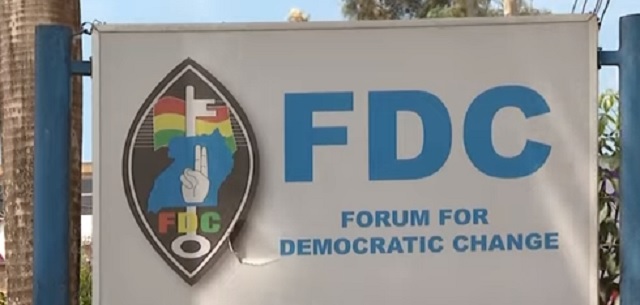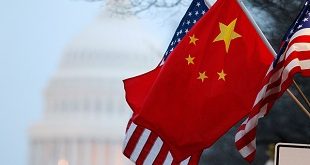
Lessons for NUP from the continuing crisis in Uganda’s previously largest opposition political party
THE LAST WORD | Andrew M. Mwenda | The Forum for Democratic Change (FDC) continues to tear itself apart. This is perhaps the final phase of the party’s existence. When time comes to write its postmortem, what would have been the causes of its demise? For we must remember that FDC was born of high ideals: to promote democratic values, to fight for honest government, to nurture tolerance of differing views, etc. The party has failed on each one of these aspirations.
Many commentators would like to attribute the crisis in the party to the scheming and cunning of President Yoweri Museveni. Although this has been an important factor, I think it has been only of secondary significance. Besides, it should have been expected that he would try to divide and wreck the party. Who wouldn’t? Therefore, to get to the root of the FDC’s crisis, we have to take a very brief tour of the history of its founding.
FDC was founded in a moment of great frustration but also a moment of great hope. Beginning in 1997, there had been growing concern inside the top leadership of the NRM that the revolution was going astray. They felt Museveni was increasingly becoming beholden to close family members, that high level corruption was eroding public confidence in government, that dictatorial tendencies were creeping into the party and government, that a peaceful transition of power was becoming a mirage. I occupied a side-seat at these developments as a reporter at Monitor newspaper.
The founders of FDC came from across the country’s geographical and ideological spectrum. The largest section were liberals from the NRM. They were into two sections: Reform Agenda and the Parliamentary Advocacy Forum (PAFO). Reform Agenda was largely composed of NRM’s youthful militants. PAFO was composed to NRM’s mature politicians who had been in high positions, especially cabinet, in the Museveni government. These NRM reformers enjoyed the sympathy of many leaders and supporters of NRM who remained loyal to Museveni.
NRM reformers joined hands with many other politicians from the old political parties, to wit the UPC, DP and CP in parliament. The first step was the creation of PAFO, which included Reform Agenda activists. The third step was to reach out to all other progressive politicians like Karuhanga Chapa from new and smaller parties plus other previously non-affiliated politicians and intellectuals. Thus, FDC was born a large and diverse omnibus organisation.
It did not take long for this large and ideologically diverse leadership of the party to find itself in conflict with its base. Young people were angry and impatient. They wanted radical change and wanted it immediately. The old guard, especially from NRM, were cautious and reflective. They understood that revolutionary change was neither possible nor desirable. So, there was a conflict between the top leadership and the base. Besigye was the first politician to smell the anger of the militants and placed himself as their leader. But this anger was like a poisoned chalice. It manifested itself in the form of self-righteous indignation.
Hence, anyone who did not exhibit exaggerated hatred of Museveni and the status-quo was accused of being a mole. Increasingly the militants became the dominant face and voice of the party. And increasingly, the more mature leaders of the FDC slowly left the party, initially in trickles and later in floods. People like Amanya Mushega and Eriya Kategaya found themselves unable to remain inside the party. Some went back to NRM, confirming the accusations that they were moles. Others went totally silent. A few like Augustine Ruzindana and Mugisha Muntu tried to stay inside. But the forces of intolerance enforcing ideological purity were on the march.
Activists like Betty Kamya were hounded out of the party because she insisted on remaining in dialogue with Museveni. She formed her own party and even ran for president. Muntu was the last to fall, quitting to form his own. FDC continued to shrink, its share of parliamentary seats falling from a high of 18% in 2006 to a low of 5% in 2021. Besigye refused to leave the leadership of the party. Although his two terms as president ended, he created a private office at Katonga Road. Using his immense influence on the party’s base, he frustrated his successor, Muntu. Then he handpicked what he considered would be a puppet, Patrick Amuriat, and anointed him president. He forgot that there was an even better-skilled puppeteer.
Through these internal struggles, FDC moved from a large and diverse organisation into a radical extremist cult intolerant of dissent. It lost 90% of its leaders – those people with experience, skills and a national profile to provide it leadership. Meanwhile, Museveni was exploiting these internal weaknesses to extend his appeal. Slowly, he was able to woe West Nile, Lango, Acholi and Teso to his corner. By the time Bobi Wine struck and wrestled Buganda and Busoga from him, Museveni was comfortable in boxing the young upstart to look like an ethnic Baganda candidate. FDC may not recover from these fights but other parties, especially NUP, can draw lessons from its demise for their own future.
The first lesson is that Uganda is a very diverse country – ethnically, religiously, ideologically, etc. No single group commands a majority. It is a polity of many diverse minorities. To build a large political base requires accommodating divergent interests, opinions and traits. NRM provides this perfect example. Even though he has the power and resources of the state, Museveni has not insisted on ideological purity. NRM leaders can express any views and yet will not be hounded out of the party. The best example is the party’s own spokesman, Ofwono Opondo, who sometimes and often, sounds like an opposition politician on television. To this extent, NRM remains the most liberal party in large party because of this tolerance of diverse views.
The second lesson is that aspirations are projections about a future one wants, not a present one can get immediately. The journey towards that destination is traversed at a creep, not a gallop. To demand and expect that every democratic ideal in the constitution should be realised here and now is to demand the impossible. It has taken the USA 250 years of continuous struggle and the country continues to fall short on many of the ideals in its constitution. Rather than denounce Museveni as a demonic tyrant, find ways to work with him for the future that will be realised over generations.
*****

amwenda@independent.co.ug
 The Independent Uganda: You get the Truth we Pay the Price
The Independent Uganda: You get the Truth we Pay the Price




Well stated, I could mention the bitterness of a majority of FDC leadership that repels and scares the populace.
The real crisis is in the ruling party where monies have been appropriated to buy members of the opposition while loyal longtime cadres wallow in despair and threats of destitution. In Kasese where I live, most people that have benefited fr the presidential appointments spent their past opposing the NRM party the real oldtime crusaders are not heard of anymore.
If dirty money is what sparked the FDC woes then any patriotic citizens should castigate the giver of the monies and let the traitors wallow in shame.
Treachery in any community is nothing to celebrate. The numbers in the ruling party do not really need the extra cost of purchasing more members but rather take care of those that have remained in the party ranks against all odds.
Thank you
.
1.Its unfortunate that politics of today is about humiliating others and not about disagreements on policies.Look at USA with Trump and Hunter Biden’s case.
2.Its not by accident that Ssemujju and Lukwago are all Baganda,In Buganda life is about sale ,theft and tricksters they do not believe that people make decisions based on principle.
3.The people of North and Eastern Uganda are more civilized with their understanding of partnership with NRM perhaps its because they are genuinely good people.
4.Besigye is just shy to say that term limits are unfair democracy polices if he had his way he would have run for FDC Presidency.
5.Just imagine if FDC was in power,Uganda would now be worse than Sudan.
6.Why is Besigye Remote controlling FDC from Katonga and not Nanjankumbi?
7.Stop it security! It was so embarrassing to see u arresting Bobi Wine from the apron of the airport.Are you double agents?you are the ones marketing Bobi Wine.
NRM is classic